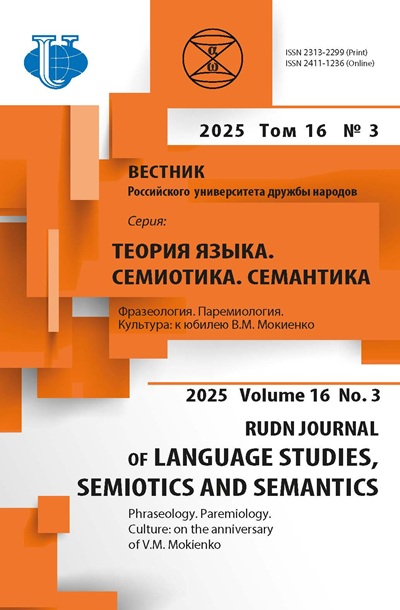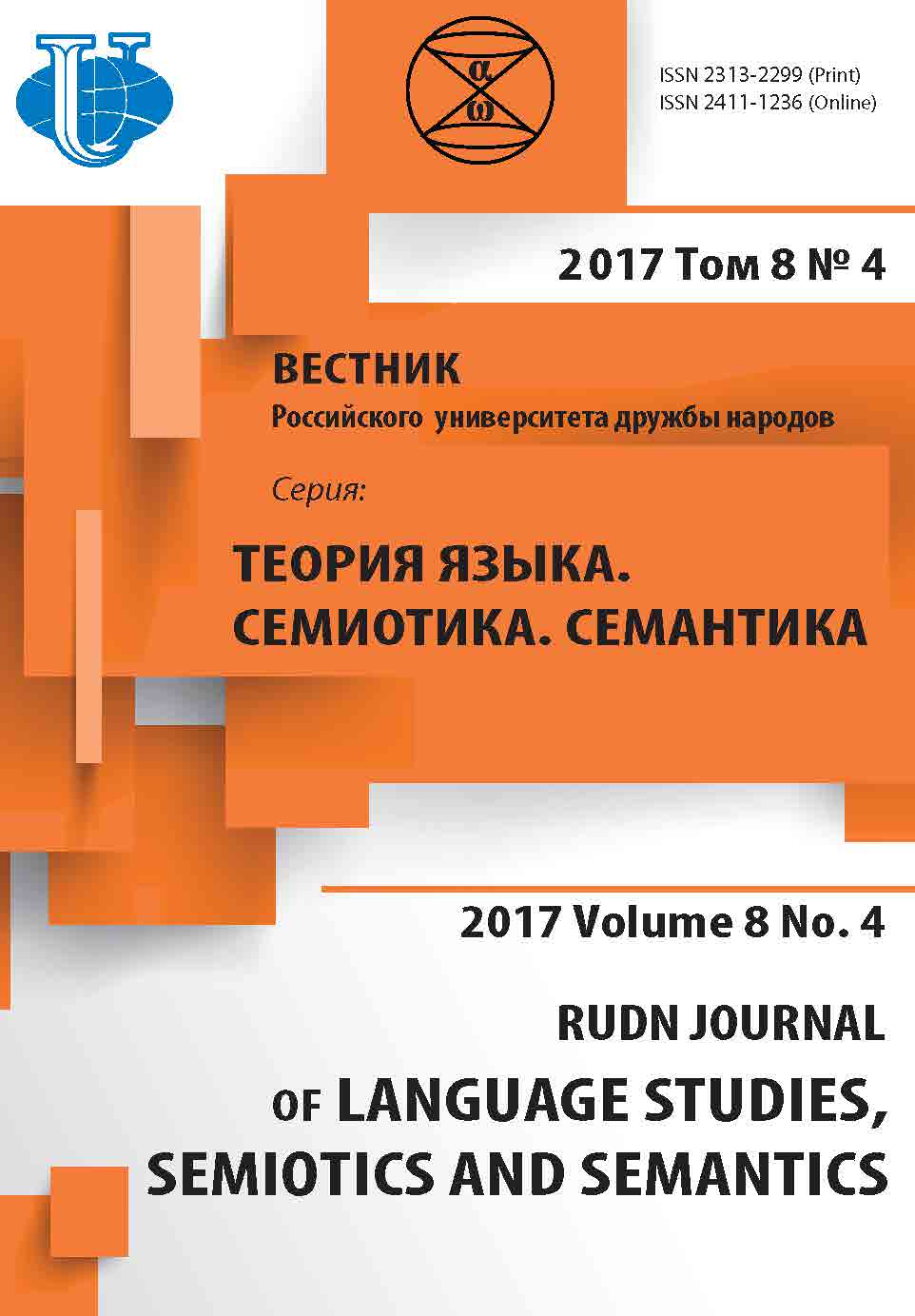«ФЕНОМЕНОЛОГИЧЕСКИЙ МОМЕНТ» В РАЗРАБОТКАХ Г.П. МЕЛЬНИКОВА: К ПОСТАНОВКЕ ПРОБЛЕМЫ
- Авторы: Загуменнов АВ1
-
Учреждения:
- Вологодский государственный университет
- Выпуск: Том 8, № 4 (2017)
- Страницы: 1051-1057
- Раздел: СТАТЬИ
- URL: https://journals.rudn.ru/semiotics-semantics/article/view/17986
- DOI: https://doi.org/10.22363/2313-2299-2017-8-4-1051-1057
- ID: 17986
Цитировать
Полный текст
Аннотация
Целью предлагаемой статьи является построение лингвистической эпистемологии теоретических разработок Г.П. Мельникова в свете дискуссии зарубежной философии науки о влиянии идей Э. Гуссерля на структурную лингвистику. Общее содержание работы подсказала проходившая с 03.04.2017 по 08.04.2017 международная научная стажировка «Общая и частная методология филологической науки», а также некоторые обобщения, опубликованные в коллективной монографии «Системный взгляд как основа филологической мысли» (2016). Лингвистические приемы и способы исследования (описание, наблюдение) перенесены на научный текст как материал для реконструкции «феноменологического момента» как концептуальной структуры. В статье проведен анализ по трем линиям: исходная внутренняя детерминанта искомого конструкта в методологии языкознания, текущая внешняя детерминанта формального совпадения по ряду параметров и текущая внутренняя детерминанта оценки Г.П. Мельниковым собственных построений в соотношении с определенной гносеологической системой. Вывод, который делается в предлагаемой работе, касается признания наличия феноменологического момента в выводимой Г.П. Мельниковым «системологии».
Ключевые слова
Об авторах
А В Загуменнов
Вологодский государственный университет
Автор, ответственный за переписку.
Email: zaw1991@mail.ru
Загуменнов Александр Владимирович, аспирант кафедры русского языка, журналистики и теории коммуникации Вологодского государственного университета; научные интересы: теория языковой личности, филологическая герменевтика, история языка, анализ текста, методология
ул. Ленина, 15, Вологда, Россия, 160000Список литературы
- Гайденко П.П. Философия Фихте и современность. Москва: Мысль, 1979.
- Гумбольдт В. фон Избранные труды по языкознанию. Москва: ОАО ИГ «Прогресс», 2000.
- Гуссерль Э. Идея феноменологии: Пять лекций. Санкт-Петербург: ИЦ «Гуманитарная Академия», 2008.
- Гуссерль Э. Л огические исследования. Т. II. Ч. 1: Исследования по феноменологии и теории познания. Москва: Академический Проект, 2011.
- Колесов В.В. Реализм и номинализм в русской философии языка. Санкт-Петербург: Logos, 2007.
- Лосев А.Ф. Форма - Стиль - Выражение. Моск ва: Мысль, 1995.
- Мамардашвили М.К. Как я понимаю философию. Москва: Прогресс, 1992.
- Мельников Г.П. Системная типология языков: синтез морфологической классификации языков со стадиальной. Москва: Изд-во РУДН, 200 0.
- Мельников Г.П. Системология и языковые аспекты кибернетики. Москва: Сов. радио, 1978.
- Потебня А.А. Полное собрание трудов: Мысль и язык. Москва: Лабиринт, 1999.
- Свасьян К.А. Феноменологическое познание. Пропедевтика и критика. Москва: Академический проект; Альма Матер, 2010.
- Философская энциклопедия. Т. 5. (Сигнальные системы - Яшты). Москва: Советская энциклопедия, 1970.
- Якобсон Р.О. Избранные работы. Москва: «Прогресс», 1985.
Дополнительные файлы












